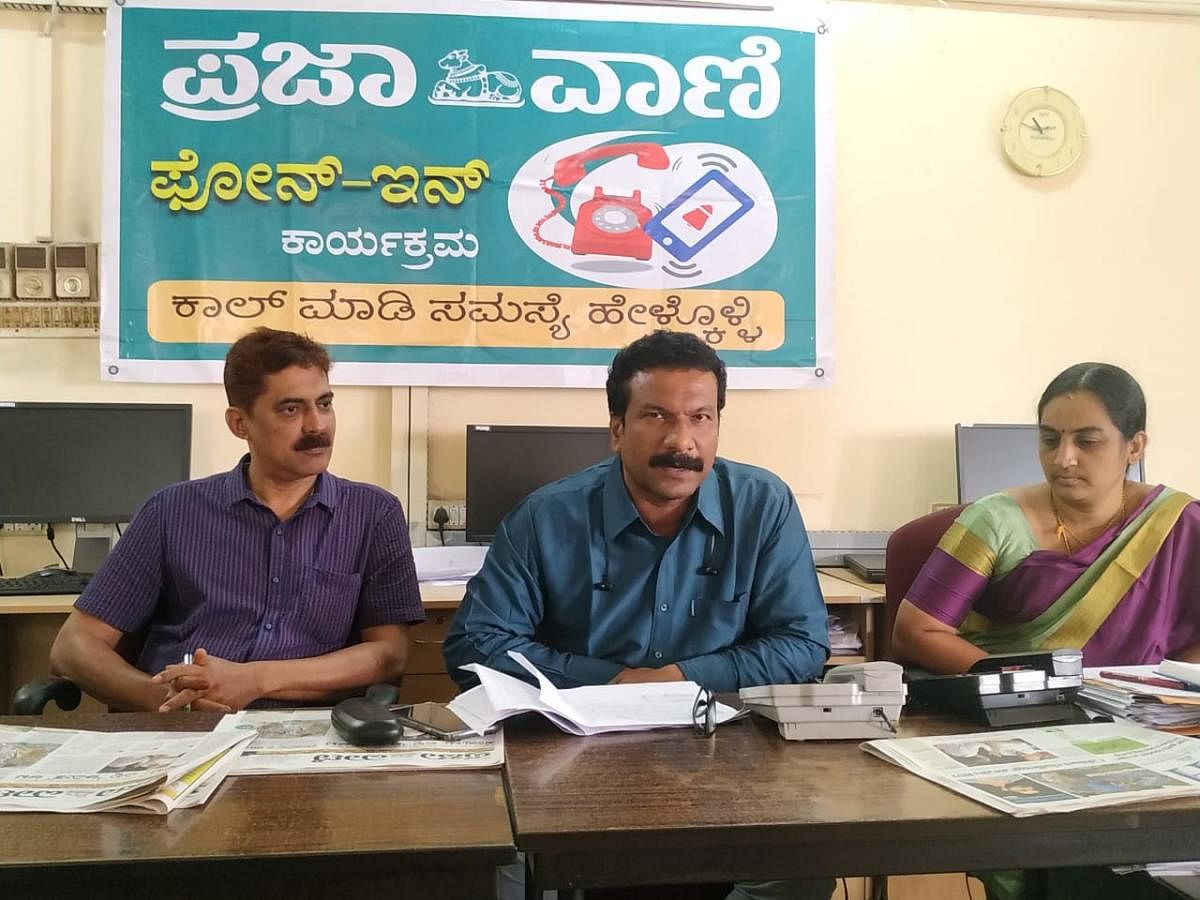
District Vector-borne Disease Control Officer Dr Naveenchandra Kulal appealed to people not to panic over dengue.
“People should ensure water does not remain stagnant near houses, buildings and vacant places, which aids breeding of mosquitoes,” he requested.
The officer was speaking at a phone-in programme organised by Prajavani at the DH-PV editorial office at Balmatta on Tuesday. He said patients suffering from dengue should take rest and drink a lot of water. In addition, one needs to consume fresh fruits, vegetables, or fish to develop immunity, he advised.
When a caller Ravi Kumar from Bantwal asked if mosquitoes could breed in the terrace of a building or a house, Dr Kulal said that terraces should be cleared of stagnant water to prevent breeding.
“Houses and institutions should keep clearing fresh water stocks with mosquito larvae on a regular basis. Larvae have been found to breed on water that has collected in plastic containers used to grow plants, shells of coconut, discarded tyres, buckets and water tanks used to store water. The larvae get stuck to the plastic containers easily and grow with the moisture content and a small quantity of water. Even plastic drums should be cleaned thoroughly and dried at least once in a week,” guided the officer.
Nagesh from Gurpura sought to know the symptoms of dengue and Dr Kulal listed sudden bursts of high fever, severe headache, pain behind the eyes, severe joint and muscle pain, fatigue, nausea, vomiting and rashes as symptoms.
“Normally, the fever subsides on consumption of paracetamol tablet. If a patient develops bleeding, then he or she has to be shifted to the hospital. The platelet transfusion should take place only if the count reaches below 10,000, as per the WHO guidelines and if a patient develops bleeding. The haemoglobin level of a patient should also be monitored more than the platelet level of a patient,” he advised.
The platelet count can be reduced even for malaria and common cold, he added.
A dengue-infected patient who is suffering from uncontrolled diabetes, cancer patients undergoing chemotherapy and HIV patients who are under treatment need to be monitored at the hospital, Dr Kulal reminded.
When Reshma from Gujjarakere sought to know preventive measures for dengue, the officer said, “Dengue infection rate is higher outdoors and during the day, when mosquitoes bite most frequently. The aedes aegypti breeds is capable of biting anyone throughout the day. One needs to use mosquito repellents on the exposed parts of the body. Even neem oil, lemon grass oil and coconut oil can be applied while going outdoors to prevent mosquito bite. Nets should be used while sleeping. Mosquito meshes for doors and windows can be used to check the entry of mosquitoes into homes.”
The sporadic rain has left the district with stagnant water near houses and buildings. Further, the weather in Dakshina Kannada, at 18 to 32 degrees Celsius, is conducive for mosquito-breeding, said Dr Kulal.
He also told another caller that fogging can be taken up in houses where dengue cases have been reported. It will be of no use, however, if the fogging is taken up after 10 days of reporting the cases, he added.
District Ayush Officer Dr Iqbal said that juice extracted from papaya leaves helps improve platelet count in dengue patients. “The juice, however, should not be consumed by those who are not suffering from dengue,” he cautioned.
“Ayush believes in prevention of disease. People should consume more of juices made of citrus fruits like lemon and orange during the season. Normally, during the month of ‘Aati’, people consume more of traditional, seasonal food in Tulu Nadu, which help them gain immunity. Instead of traditional food, it is a tragedy that we have now gone for Chinese food,” said
Dr Iqbal.